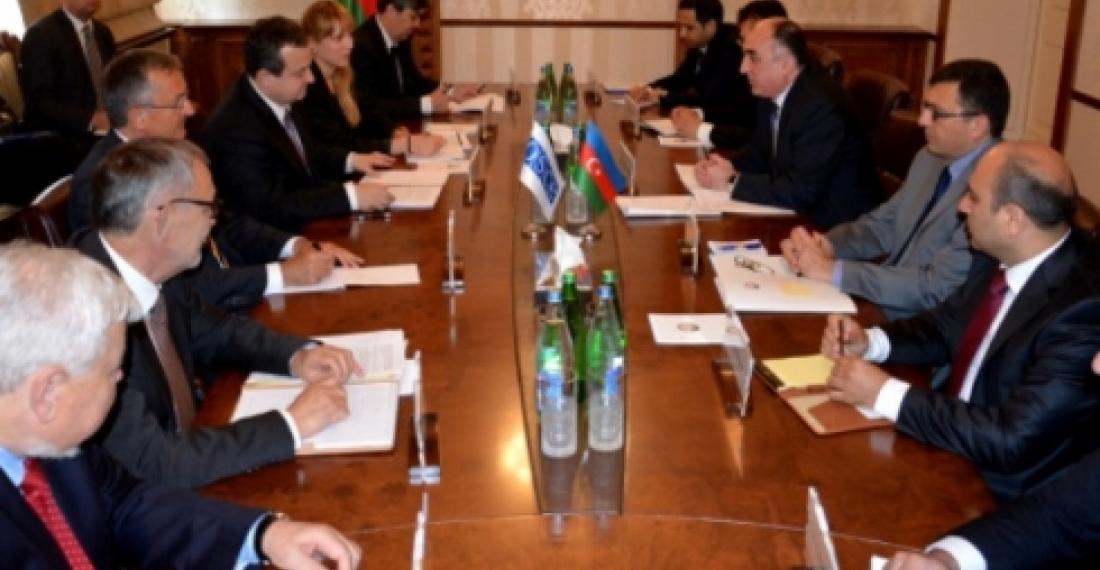Во время своего визита в Баку, состоявшегося 1 июня, председатель ОБСЕ, министр иностранных дел Сербии, Ивица Дачич, выразил обеспокоенность в связи с беспрецедентным количеством жертв за первые четыре месяца этого года среди военных и гражданского населения в зоне карабахского конфликта и подчеркнул необходимость всем участникам соблюдать соглашение о прекращении огня. "Альтернативы мирному урегулированию нет", сказал он.
В заявлении ОБСЕ говорится, что Дачич в беседе с президентом Ильхамом Алиевым и министром иностранных дел Азербайджана Эльмаром Мамедъяровым во время их встреч в Баку напомнил, что "личный опыт Сербии подтверждает, что только путем диалога может быть найдено устойчивое, мирное решение, такое, которое поставит регион на путь сотрудничества, единственный путь вперед в нашем все более взаимосвязанном международном сообществе".
Дачич подчеркнул свою полную поддержку усилиям сопредседателей Минской группы ОБСЕ и его личного представителя, посла Анджея Каспршика, которые направлены на поощрение диалога между сторонами.
В неоднозначном упоминаний текущей озабоченности в рамках ОБСЕ касательно недавнего наступления на активистов гражданских прав и журналистов в заявлении ОБСЕ сказано, как подчеркивает Дачич, кроме того, что ОБСЕ предлагает инструменты для продвижения демократических реформ для ее государств-участников, ОБСЕ также является хорошей платформой для объединения усилий в области прав человека перед лицом транснациональных угроз. "Организация готова продолжить работать с Азербайджаном для того, чтобы помочь ему повысить потенциал страны в борьбе с такими угрозами", добавив, "также как и продолжить его внутренние реформы."
Дачич также посетил офис координатора проектов ОБСЕ в Баку, где обсудил с членами постоянной миссии программную деятельность.
В данный момент Дачич находится в Тбилиси и затем он посетит Армению в конце своего турне по региону.
источник: commonspace.eu по материалам osce.org
фото: Председатель ОБСЕ на встрече с министром иностранных дел Азербайджана в Баку, 1 июня 2015 года (фото любезно предоставлено МИД Сербии)






